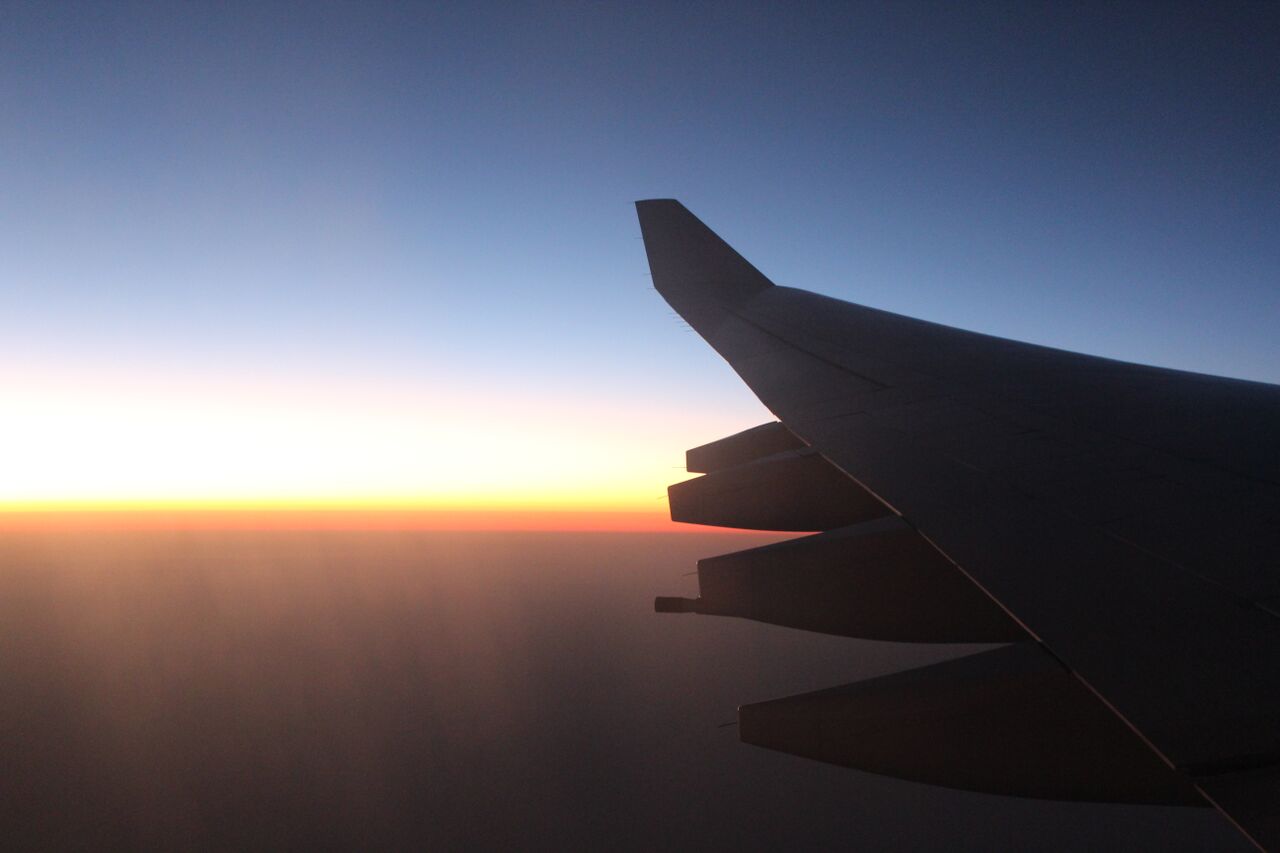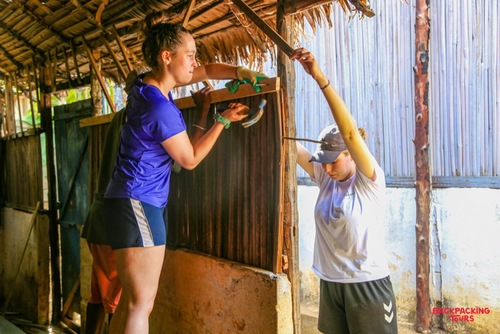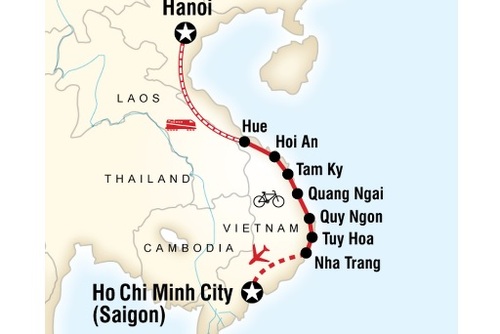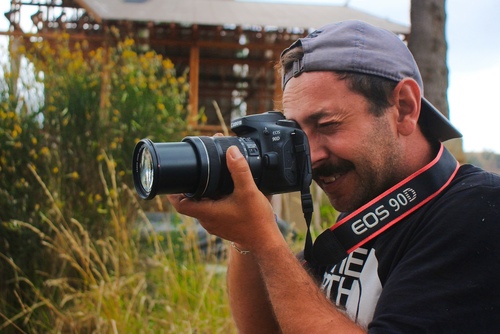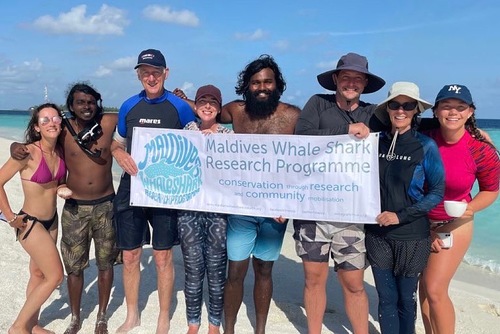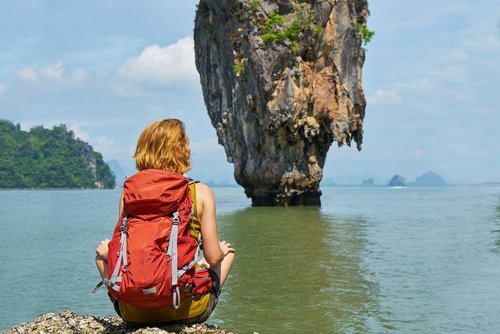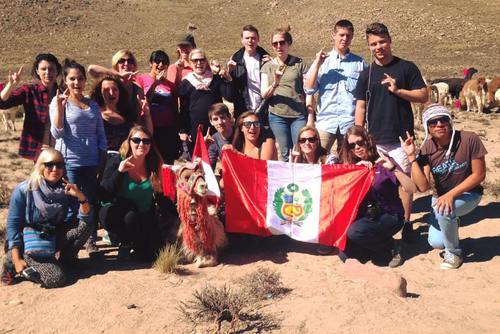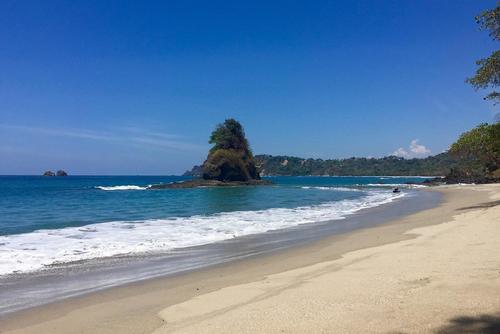Having travelled and experienced the same pre-flight panic, Sarah Waldie decided it was time to tackle these fears head on and has written this article with helpful advice.
Hopefully, by the time you finish reading you will replace the nerves with excitement and will want to head off on an adventure of your own.
Flying
Although statistics are often a futile way of conquering an illogical fear, I once learnt that travellers have a one in 10 million chance of being on board a plane that crashes - the same chance as becoming the next Prime Minister.
For me, this statistic is calming as I certainly feel my chances of accidently ending up at 10 Downing Street are slim. Learning more about planes and their design, in some cases, can help. Planes are built to be reliable and have to follow many safety regulations and checks.
Enrolling on a course to learn more, could help to resolve some of your concerns.
Other people use herbal remedies or calming oils to help relieve the nerves. If you run out of ideas, try reading blogs and stories of others who have a fear of planes – you are definitely not alone.
They might have some good advice or coping strategies that work for them. Whatever you do, don’t let fear get in the way!
Getting Lost
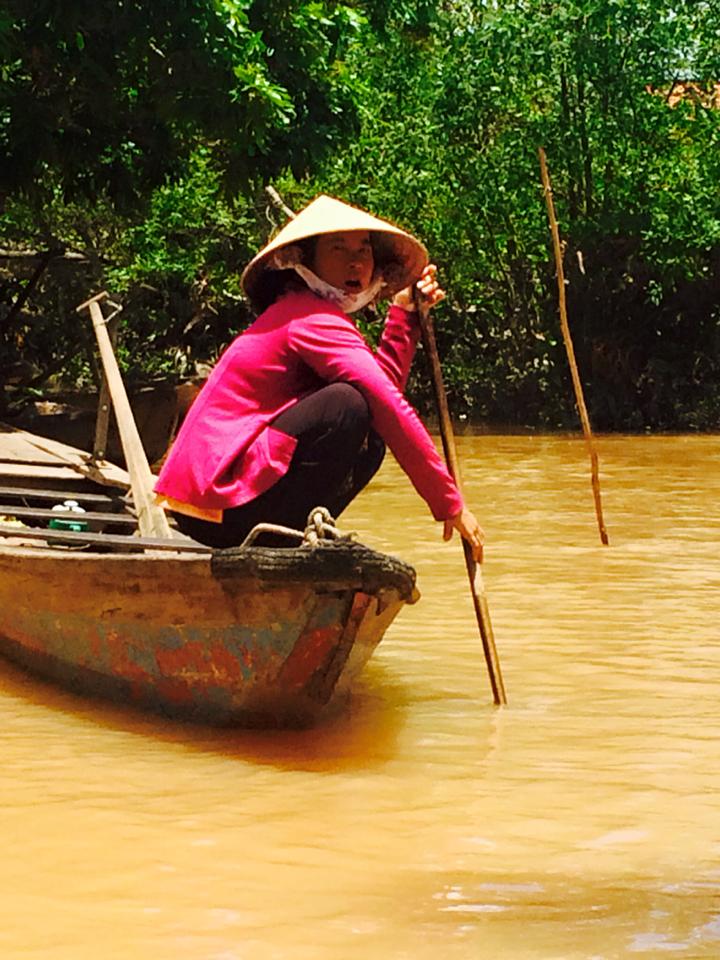
Getting lost often seems like a negative predicament to be in. It is hard not to panic when you cannot locate yourself on a map or you take a wrong turn, especially if you are on your own.
Try turning that negative situation into a positive one- there is a lot that can be gained from being ‘lost’. When travelling abroad, many of us like to plan our days ahead of time. We research reviews of restaurants and read information online.
Although there is absolutely nothing wrong with being prepared, there will be a lot of other travellers who have read the same advice and have planned the same routes. Being ‘lost’ could be a blessing in disguise.
Embrace it and see where you end up. You could find a local restaurant- an unknown gem. I love getting lost because it provides the perfect excuse to speak to a local. Often they will give you knowledge that cannot be found in a guide book.
Home Sickness
Home sickness is a natural part of travelling abroad and completely understandable. Some people are affected more than others. The aim is to not let it affect your experience and to manage it.
My best advice is to avoid social media at all costs when you are sad. Naturally, at your lowest moments, perhaps it’s raining or you are alone, you will seek to connect with your loves ones at home. There are several problems with this. Firstly, parents, friends or partners are miles away and seeing you upset will only upset them.
Homesickness often passes quickly while abroad because there is so much to do. Once you have an exciting venture lined up, you will swiftly move on from your homesickness, but you loved ones may not know this and will continue to worry.
Call home or use Whatsapp when you have positive things to say. Secondly, you may contact home and find that they are busy- they have all been invited to a party that you are not attending- this will make you feel worse!
When feeling low, plan something exciting to do or speak to someone locally. Most of all- remember it will pass!
Fussy Eating
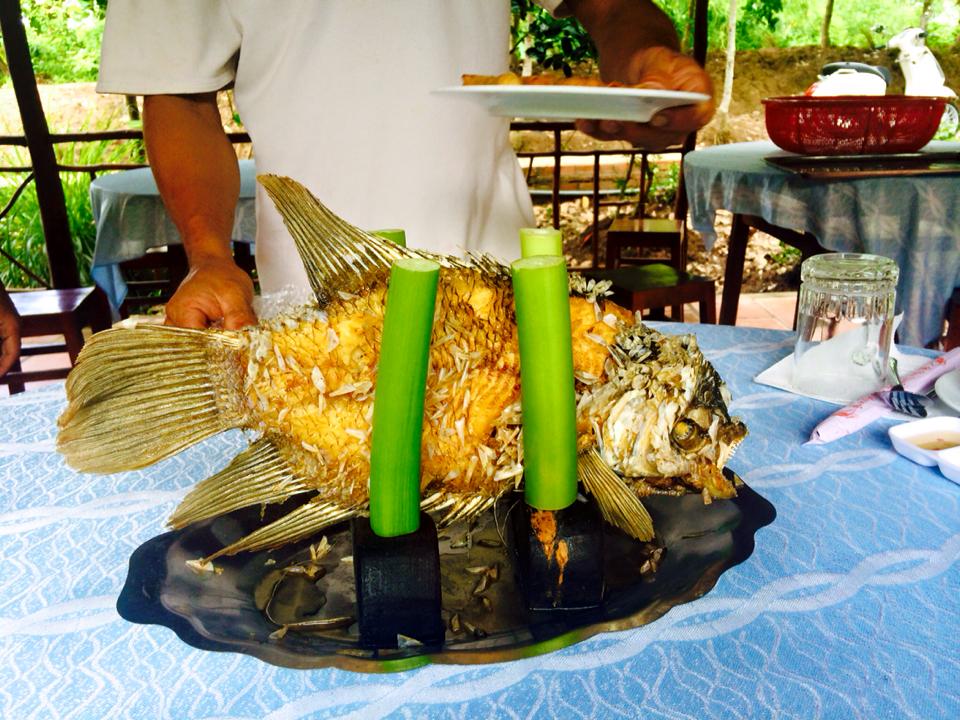
Do you avoid exotic looking food because you fear spice, strange tastes and its weird look? Don’t worry. There are two ways to approach this problem - avoidance or determination.
Many countries have a huge variety of foods and cater their dishes to foreigners. Although this is a nightmare for some, for a fussy eater this is a huge relief. Most countries base their diets around potatoes or rice. Most places that I have visited will be able to cook rice and chicken fairly easily so you won’t starve.
If however, you end up in a place that is more limited in its range of food or you just want to challenge yourself, use this as an opportunity to try new things and extend your palate.
Before I went to on a tour in Africa, I was a typical ‘korma eater’, scared of spice, dubious about things with eyes and eager to turn up my nose at new foods. I lived with a host family and realised that fussy eating is a luxury.
I now actively seek Ghanaian restaurants because I fell in love with western African food. Since then, fussy eating is a thing of the past. My advice- try everything at least once. At least then your opinion will be based on experience and not just a hunch.
The Unknown
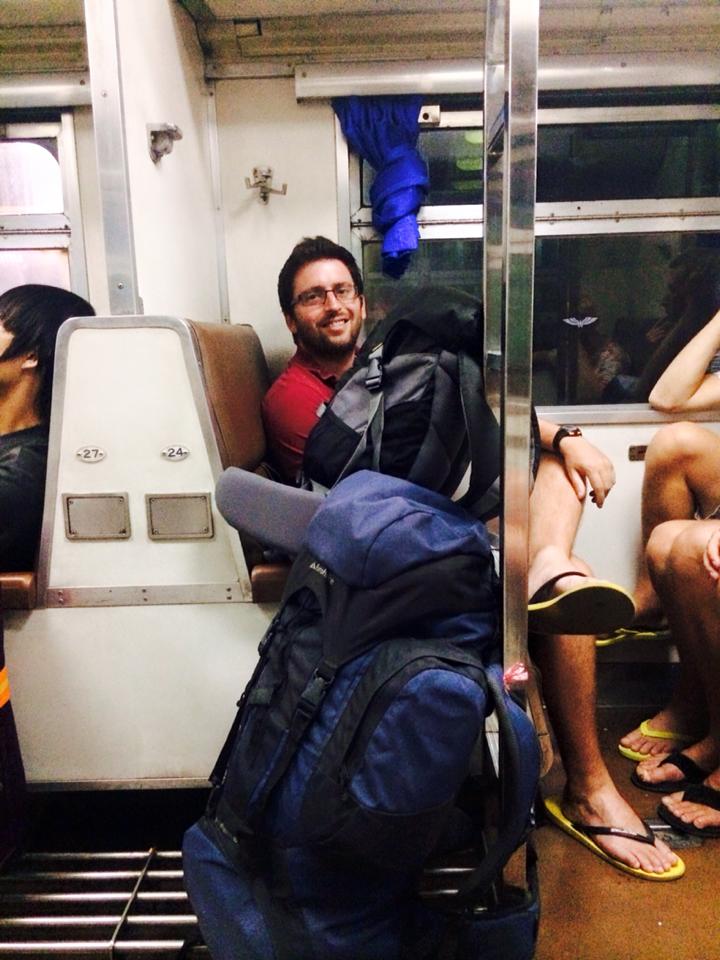
Travelling to an unknown destination is increasingly difficult in our well connected world.
Often we can research a country and get a good understanding of the area. We can look at maps, plan routes and trawl through photographs. That being said, the more memorable moments of your travels will often involve the discovery of something new. It doesn’t matter how much you read about a country, there will always be something that you learn that catches you off guard.
Don’t let the unknown panic you. This summer, I went on an overnight train in Thailand and had no idea what to expect. I had a very sleepless night, due to some overly animated Russians.
At the end of it – once I had slept- the experience became just another funny story to tell. I could have read reviews, but they can’t prepare you for every eventuality. Expect the unknown; it’s part of the experience!
Lack of Facilities
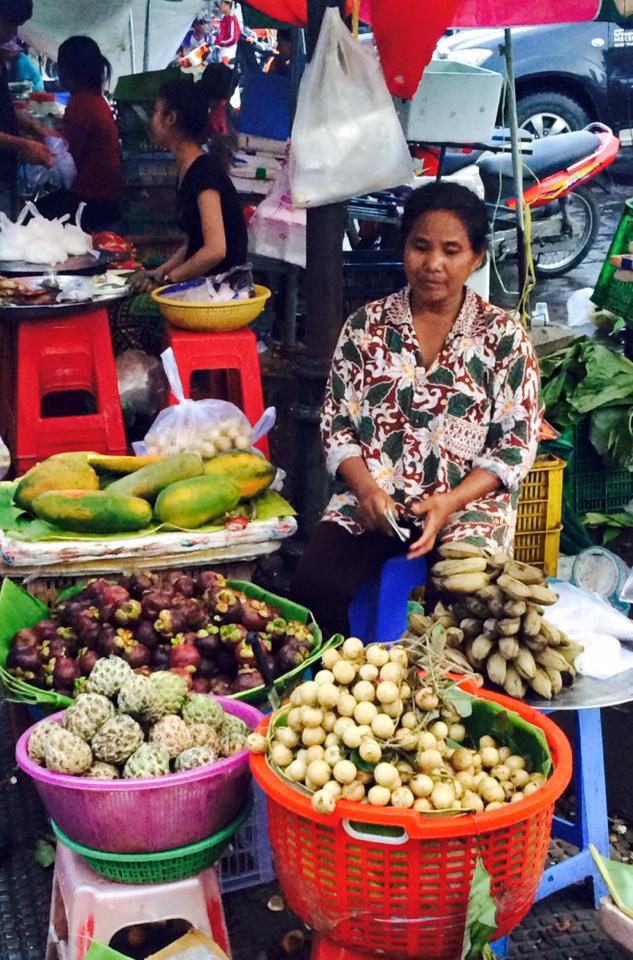
On a gap year abroad, people often panic about the lack of facilities.
The destination you travel to may have a different toilet or no toilet at all. You could go to a country where water is scarce and showers are limited or non existent. Time to panic? Not at all.
You have to remain level headed about this. If you were to travel to the desert, one of the highlights would be the untouched landscape. Now imagine that landscape ruined by shower blocks and toilet cubicles.
If you are camping in a remote location or going to a country where facilities are different to what you are used to, pack wet wipes. It is not ideal, but in the long run, being slightly dirtier for a few days is worth it if you get experience a fantastic new destination.
Safety
Safety should be on the forefront of your mind before and during your trip abroad. Always check government websites before you go away to check for travel advice.
Be aware of the weather forecasts and pack accordingly. Before you go, seek medical information, buy insurance and get advice from other travellers, who have been to that destination.
While you are away on your gap year, follow these basic rules: always tell people where you are going, avoid wearing expensive jewellery and clothing, keep your passport safe and always ask advice if you are unsure about travelling to certain areas.
Just like at home, sometimes things happen that are out of your control. The best advice I can give you is to stay calm, seek advice and always take a spare credit card or debit card so that you can access cash in an emergency. Be prepared, but don’t let fear stop you!
Plan a Trip
The fears above are the most common excuses people use not to travel. All of them are reasonable, but often the best challenges involve some form of fear.
At Oyster Worldwide, we support all our travellers at our UK based office and abroad. We have representatives in each country that can help with your day to day questions.
Booking onto a programme instead of independently travelling can be a great way to ensure that you are prepared, safe and supported. If you are interested in booking your own gap year abroad, check out the Oyster Worldwide for lots of travelling ideas.
Related Pages

